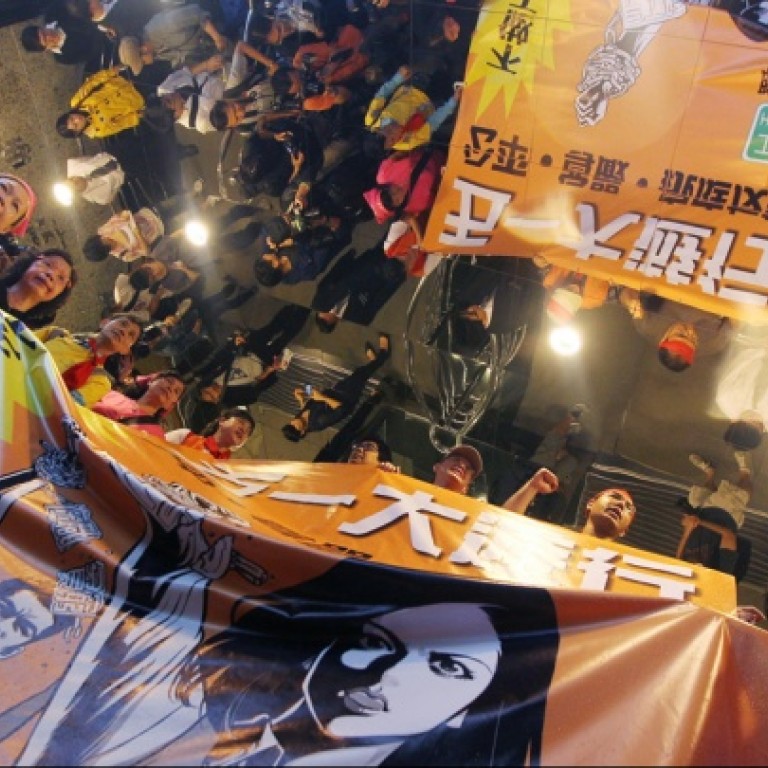
May Day marches draw thousands with Hong Kong dock strikers leading the charge
As many as 10,000 make strong turnout for rallies held by the city's main unions, with striking dockers leading the charge
Truck drivers, domestic helpers, striking dockers - they came from different walks of life, but the thousands of people who joined yesterday's two Labour Day marches were united in their demand for better working conditions.

Many of the signs and banners called for legislation on standard working hours, a collective bargaining law and an annual review of the minimum wage.
"The turnout was a record high this year because the dockers' strike has let Hong Kong people become aware of how the city's workers are treated. Can you imagine having no toilet break or meal break?" said, Lee Cheuk-yan, the confederation's general secretary.
"We need to have a collective bargaining law in Hong Kong. If we did, the strike would not have happened. The union would have resolved the dispute with the dockers' employers through negotiation a long time ago."
Taking the lead on the march were the 450 dockers who walked off the job 36 days ago at the Kwai Tsing container terminals, where a subsidiary of Li's Hutchison Whampoa runs five terminals. The dockers are seeking a pay rise of about 20 per cent.
Among them was Li Pak-kung, who came with his wife Wang Xiu-ying and son, Li Cheuk-fung, eight. "I would not have lasted so long in the strike without their support. With it, I can go on for as long as 60 days. No problem at all," Li said.
Domestic helper Roasaiio Bicon, from the Philippines, took part to show support for the effort to introduce a standard work day of eight hours and overtime pay set at 1.5 times the regular wage rate. "We as domestic helpers are on call 24 hours a day. And we always have to work 12 hours a day. It is very tiring," Bicon said. She also wanted domestic helpers' monthly salary to go up from HK$3,930 to HK$4,500.
Truck driver Sung Hon-kuen, who hauls concrete, agreed standard working hours were needed but he was also marching to protest against tycoon monopolies in the city. "Look at Li Ka-shing. He owns so many businesses. He basically controls our everyday life," Sung said.
Meanwhile, the Federation of Trade Unions said 5,000 people took part in its march - from Southorn Playground in Wan Chai to the government headquarters. Police put the figure at 2,600 at its peak.
Federation chairman Stanley Ng Chau-pei said the recently established standard working hours task force should submit a report for public consultation in 18 months, instead of the scheduled three years - the end of the chairman's term.
A government spokesman said it was committed to improving employee rights and benefits at a pace commensurate with the socio-economic development of Hong Kong.
"In doing so, we will seek to strike a reasonable balance between the interests of employers and employees," he said.
In Macau, a protest organised by six different groups drew 2,000 to the city's government headquarters. The groups were calling for the government to widen democracy, crack down on illegal workers, and improve the housing situation.


